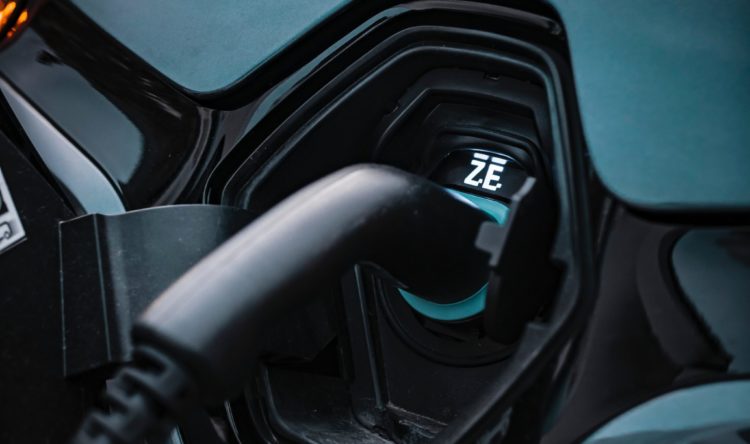Blue, green and red
LTNs and the green agenda effects on motorists and voters
Low Traffic Neighbourhoods (LTNs) have become a political battle ground in the run up to next year’s expected general election.
Prime Minister Rishi Sunak has now ordered a review of low traffic neighbourhoods (LTNs) in England. Politically he is stating that he is ‘on the side of the motorist’, while Labour is infringing on drivers’ freedoms and their wallets.
Counting the cost
The PM told the Sunday Telegraph he was supporting people to “use their cars to do all the things that matter to them”.
As the cost of living crisis really begins the bite and he looks to secure his position as Prime minister, not to mention leader of the Conservative Party, Sunak is beginning to outline his position on key policy areas.
They also form part of a sharpening debate on green policies following last week’s by-elections.
LTNs aim to reduce traffic, in part by preventing drivers using quieter residential roads as through-routes.
Some research suggests they reduce localised pollution. But critics, including some Conservatives MPs, argue they harm the freedom of motorists and push traffic onto other roads, causing congestion. Many Conservative politicians and members see them as ‘big brother’ policies, with the state controlling too many aspects of individuals rights and choices.
In his Sunday Telegraph interview, Mr Sunak also said he was not planning to change the deadline for the 2030 ban on the sale of new petrol and diesels cars . This comes despite calls from some Conservatives to do so. This latest move on LTNs could be seen as a compromise area of policy.
Backseat Drivers
In a letter to Mr Sunak on Saturday, a group of 43 Conservative MPs and peers including Sir Iain Duncan Smith, Sir Jacob Rees Mogg and David Davis, suggested moving the target to 2035 to avoid “grave harm to the economy”.
It read: “The public can only be left worse off by a heavy-handed ban that leaves them unable to purchase the vehicles they want.
“The future for this country is in imposing fewer burdens and being more lightly regulated than the EU, not in unilaterally imposing additional job-destroying burdens to meet an unnecessary and unworkable deadline.”
But Mr Sunak said: “The 2030 target has been our policy for a long time and continues to be – we are not considering a delay to that date.”
Car calming
LTNs have been set up in recent years in London, Bristol, Birmingham, Bournemouth and more cities. During the period of the pandemic, many local authorities took the opportunity to get involved. Tens of millions of pounds of government funding has been provided to councils for them since 2020.
A report in iNews in 2022 revealed that nearly 200 had been installed over a two-year period, with about 50 scrapped.
Going green
Their aim is to encourage people to walk, cycle or use public transport more through the use of barriers such as bollards and planters. CCTV cameras and road signs are also used to highlight and enforce the zones.
Mr Sunak said he had ordered the Department for Transport to see how LTNs were working. Earlier this month, Transport Secretary Mark Harper announced that the government was stopping the funding of new LTNs in England.
However, it is not clear whether the government could make councils alter or scrap existing schemes.
“The vast majority of people in the country use their cars to get around and are dependent on cars,” says Sunak.
“I just want to make sure people know that I’m on their side in supporting them to use their cars to do all the things that matter to them,” he said.
Free choice
Conservative MP Nick Fletcher described them earlier this year as being part of an “international socialist concept” that take away personal liberties.
Meanwhile, Labour’s Louise Haigh accused the Conservatives of “pure hypocrisy” for accelerating and funding LTN’s before “denouncing” the policy.
The shadow transport secretary said road safety measures were often demanded by local communities so the decisions must be properly consulted on and made by them.
The Local Government Association, which represents local councils, said the review was “unnecessary” and councils were best placed to make decisions with their communities.
It said councils needed long-term certainty over funding. If the government wants help to meet their own target of 50% of urban journeys being walked, wheeled or cycled by 2030, then Local Authorities need to judge what is best in their local communities.
The review will only look at LTNs in England, as they are a devolved matter in Scotland, Wales and Northern Ireland.
Politics and economics
It comes as intense heatwaves worldwide and climate change warnings highlight net zero targets. With the UK expecting and general election in the next 12 months, and amid a growing economic crisis, the UK’s net zero target is set to the top of the political agenda.
The target, set for 2050, is to no longer add to the total amount of greenhouse gases in the atmosphere.
The UK’s strategy includes generating all electricity from clean sources, switching gas boilers for heat pumps and banning new petrol and diesel cars.
This will require significant funding and investment, but the government is lacking funds and , following Brexit and the brief and highly costly ‘Truss-onomics’ period under the shortest serving Prime Minister Liz Truss, foreign investors are wary of investing in the UK.
Within the Conservative Party, there are growing internal divisions over green policies and some MPs are calling for a rethink.
In the coming week, Mr Sunak will meet energy leaders to set out details of his plans for the UK fossil fuel and green industries.
On Saturday, environment groups warned they will not “stand by” while politicians use the environment as a “political football”.
By-election rejuvenation
The recent Uxbridge by-election saw the Conservatives capitalise on voters’ anger over Labour London mayor Sadiq Khan’s plans to extend the capital’s ultra-low emission zone (Ulez). It was the key factor in their narrow victory which came against exoectations.
Labour leader Sir Keir Starmer also blamed his party’s defeat on the planned Ulez expansion.
While London Mayor Khan is being blamed, the Ulez was actually introduced by former Conservative London Mayor and Prime Minister, Boris Johnson.
Mr Khan has sought to expand the scheme further into London as part of his efforts to improve air quality in the capital. Poor air quality has been blamed on increases in serious and, sometimes fatal medical conditions in the capital.
The High Court recently ruled plans to expand Ulez were lawful, saying the mayor’s expansion decision was “within his powers”.
City Hall has said that 90% of cars driving in outer London comply with Ulez standards. This has been backed by the UK Statistics Authority.
As the surprise of the Conservative by-election victory dominated the headlines, Sunak and the leadership team have seized on this area of policy as the general election appears on the political horizon.






